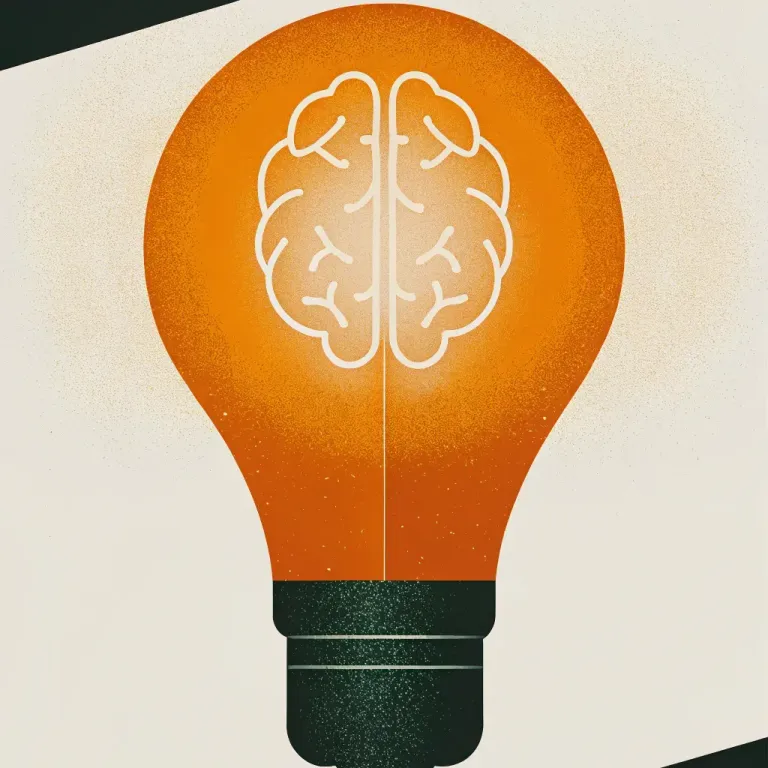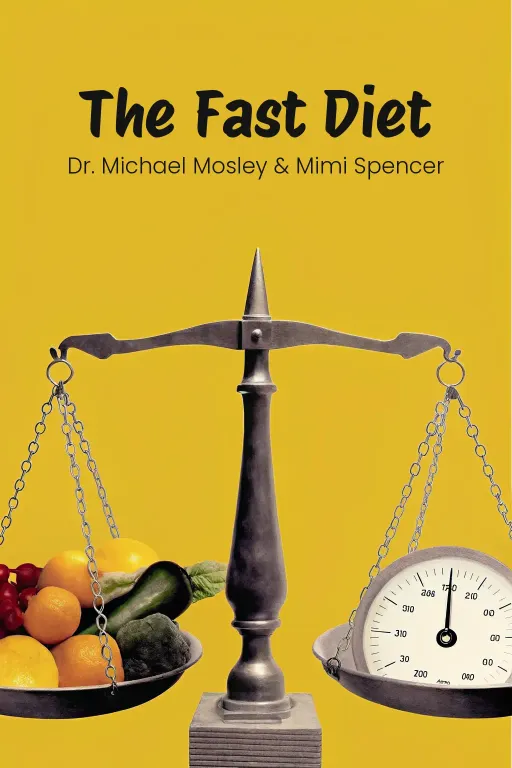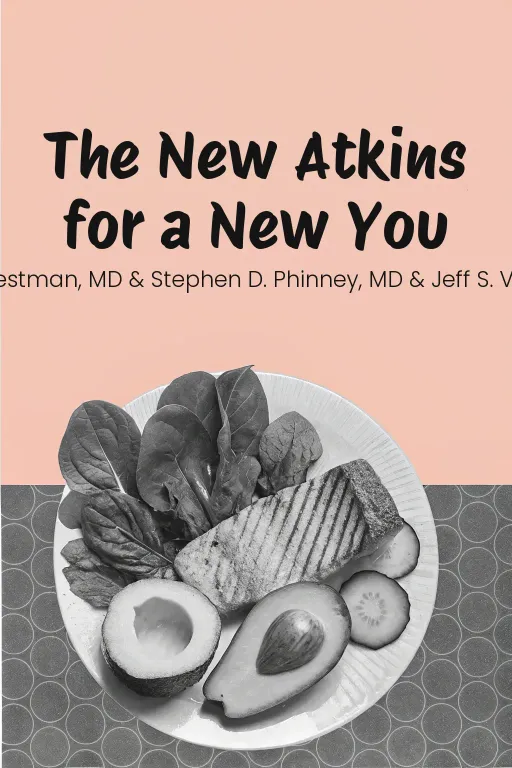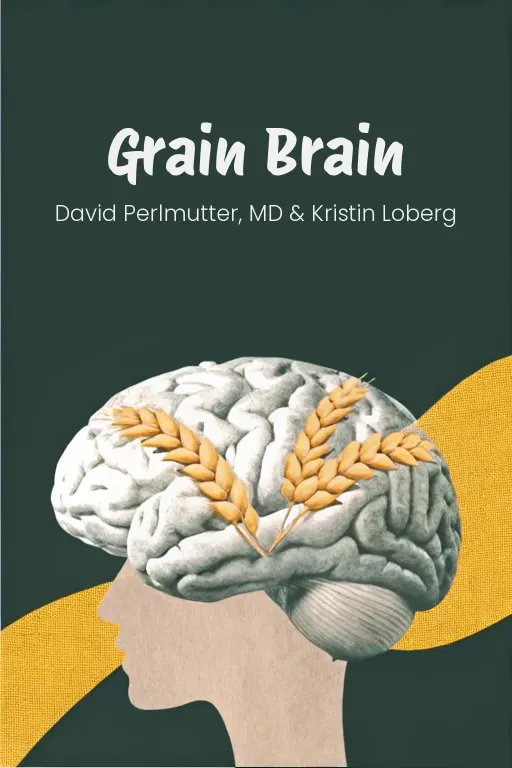
Your Thoughts: Change Your Brain, Change Your Life
Podcast by Beta You with Alex and Michelle
The Key to Peak Happiness, Thinking, and Health
Introduction
Part 1
Alex: Hey everyone, welcome back! Okay, so here's a thought: what if your thoughts, that constant chatter in your head, could actually rewire your brain, affect your emotions, and, get this, change your life? Sounds a bit far-fetched, doesn't it? Michelle: A little, yeah. Or maybe just a tad scary. I mean, if my thoughts are molding my brain, what does my habit of watching TV until 2 AM every night say about me? Alex: <Laughs> Maybe it says your brain needs a little…reset, leaning more towards relaxation and less towards productivity perhaps. But hey, the good news is there's hope! In “Switch On Your Brain”, by Dr. Caroline Leaf, she explains that our thoughts don't just shape our brains; they practically reshape our reality. She uses neuroplasticity to explain how we can actually rewire our thinking for growth, healing, and, yeah, even transformation. Michelle: Alright, you’ve got my attention… but what's the angle here? When you mix hardcore neuroscience with, let's say, spirituality, I get curious about how those two worlds connect. Alex: Exactly! That's what’s so cool about it. The book blends cutting-edge brain science with these timeless, almost biblical principles. Think of your mind as a garden. What you decide to plant, nurture, or, unfortunately, neglect, that's what grows there. Through her practical, step-by-step 21-day brain detox, Dr. Leaf gives us the actual tools to remove those toxic thoughts, root them out, and replace them with positivity and strength. Michelle: Okay, so what's the plan for today? Are we planting metaphorical seeds, pulling mental weeds, or deep-diving into the nitty-gritty science of it all? Alex: A little bit of everything, really. We're going to kick off by exploring how our thoughts impact not just our brains, but also, in a way, our spirit, merging science with faith. Then, we will be breaking down Dr. Leaf's 21-day detox process—think of it as like, a mental workout to cultivate healthier thoughts. And finally, we’ll share some really inspiring examples, everything from schools changing the game to, you know, individuals just freeing themselves from really destructive mindsets. Michelle: Got it – science, faith, and a mental workout, all rolled into one. Let's dive in before my mental weeds completely take over!
The Science and Spirituality of Thought
Part 2
Alex: Okay, Michelle, let's dive into the fascinating intersection of science and spirituality when it comes to our thoughts. Dr. Leaf’s work stands out because of this connection, you know? Scientifically, we're talking about neuroplasticity, that amazing ability of our brains to reshape themselves. And spiritually, there are these timeless principles, like the one in Proverbs: "As a man thinks in his heart, so is he." Michelle: Right, neuroplasticity. I get that the brain can adapt, but how does that actually translate into real change? If someone's been stuck in a negative spiral for years, how does their brain even begin to reroute? Alex: That's a great question! Neuroplasticity works via neural pathways - think of them as connections in your brain. The more you think, feel, or act a certain way, the stronger those connections become. They're like trails in the woods. The more you walk a specific trail, the easier it is to follow. Someone stuck in negativity has created a superhighway of toxic thinking. But, here’s the thing, our brains can create new pathways if we intentionally redirect our thoughts. It definitely takes effort, though. Michelle: So, it’s not automatic, huh? You can’t just decide one day to take the “scenic route.” You’ve got to actually build that new road. Alex: Exactly! Think about stroke patients who lose their ability to speak. With therapy, they rebuild those pathways or create new ones. It's the same with our thoughts. If you're constantly thinking, "I'm a failure," that pathway gets reinforced. Replace that thought with "I'm learning and growing," and over time, your brain actually rewires itself. Michelle: Sort of like retraining a muscle at the gym. Now, how do we know that thoughts physically alter the brain, Alex? Is this just theory, or is there real proof? Alex: Oh, there's plenty of proof! Eric Kandel, a Nobel Prize-winning neuroscientist, demonstrated that repeated mental activity literally reshapes the brain. He showed that focused thought can activate or suppress certain genes, which influences how the brain grows and repairs. So, yes, your thoughts have a direct, physical effect. It's science! Michelle: Okay, I’m convinced about the science. Now let's switch to the spiritual side. This "mind as a garden" idea is nice, but where does faith really fit? Are we just talking about positive thinking here, or does faith take it deeper? Alex: Faith takes it much deeper, Michelle. Think about Proverbs 23:7, "As a man thinks in his heart, so is he." That verse emphasizes how our thoughts shape our very identity, just like neuroplasticity shapes the brain. Adding faith – belief in God’s promises – it’s like changing the script from "I'm stuck" to "I'm chosen, I'm equipped, I'm growing.” Michelle: But doesn’t that feel like wishful thinking sometimes? Life doesn't always hand you a positive narrative. What happens when your circumstances just don’t line up with what you’re trying to believe? Alex: That’s where the Bible and brain science come together, beautifully I think. Faith isn’t about ignoring negative thoughts or pretending bad things don’t exist. It’s about "taking every thought captive,” as it says in 2 Corinthians 10:5, and asking, "Does this align with what God says about me?" If it doesn’t, you actively reframe it. And scientifically, reframing thoughts strengthens healthier neural pathways. Michelle: Hmm. I like that idea of reframing, instead of letting your brain run on autopilot, you're actively steering, even on a bumpy road. Alex: Exactly. And epigenetics adds another layer. Did you know, Michelle, that our thoughts even influence how our genes are expressed? Michelle: Wait, really? My “brain” is editing my DNA? Alex, is this science fiction all of a sudden? Alex: It’s science fact! Epigenetics studies how behaviors and environments, and that includes our thought patterns, switch genes on or off. For example, chronic stress can activate genes that are linked to inflammation and weaken your immune system. A mindset of gratitude, on the other hand, enhances genes for stress resilience and overall health. Michelle: So, if I'm constantly telling myself, "Life is terrible," my body's like, "Okay, let's pump out stress hormones and crash." But if I shift to, "I can handle this, I’m growing," my genes start playing a different tune? Alex: Precisely! Our mindset doesn’t just affect our brains, it impacts our entire bodies. It’s another way that science and faith connect. Mindful, faith-aligned thinking isn’t just good for the soul; it’s good for your physical health. Michelle: Alright, Alex. You’ve got science, you’ve got faith, and now you’ve got me intrigued. Where are some real-life examples of this stuff actually working? I mean, someone who changed their life by rewiring their thoughts? Alex: Absolutely! One of the most powerful examples is the story of the bleeding woman in Matthew 9. She'd been suffering for twelve years, exhausted all medical options, and was basically an outcast. But she shifted her focus to one belief: that touching Jesus’ garment could heal her. Michelle: I know the story, but I never thought about it like that. You’re saying her faith was a mental shift? Alex: Exactly. Her faith didn't just create spiritual change; it triggered physical and emotional renewal, too. Think of it as an ancient version of the placebo effect. Belief alone can cause real physiological changes. Her belief in healing aligned her thoughts with hope, which activated her transformation. Michelle: That's pretty profound - and practical. You've got science showing how thoughts shift the brain, epigenetics showing how it affects the body, and faith tying it all together. Alex: And that’s why this blend of science and spirituality is so powerful. It reminds us that we’re not helpless in life. Through conscious thought and faith, we can create profound change – mind, body, and soul.
The 21-Day Brain Detox Plan
Part 3
Alex: Understanding this foundational relationship really sets the stage for practical transformation, doesn't it? And that's exactly what Dr. Leaf's 21-Day Brain Detox Plan is all about—it bridges the gap between theory and practice. We're moving from abstract concepts like neuroplasticity and faith to concrete, actionable steps you can take to reshape your thinking, and your life. Michelle: So, Alex, this is where the rubber meets the road, huh? Or should I say, where the neurons meet the rewiring? What's the actual game plan here? How does one go about detoxing their brain in 21 days? I'm guessing it's not just about thinking happy thoughts and then calling it a day. Alex: Not quite! Dr. Leaf outlines a structured five-step process to guide people through this journey. It's a mental workout, really—a daily practice meant to clear out the toxic clutter, and build healthier neural pathways. Let me break it down for you, step by step. Michelle: Alright, I'm ready. Lay it on me—what's the first step to getting a brand-new brain? Alex: Okay, step one is "Gather". This is where you identify the toxic thoughts that negatively impact your mindset, your emotions, and your actions. It's like cleaning out a cluttered room—you can't organize or transform what you haven't acknowledged is even there. The key here is honest self-reflection—being willing to confront thoughts you might have ignored, you know, or just buried deep down. Michelle: Sounds simple enough in theory, but I imagine this is harder than it sounds. I mean, most people aren't exactly eager to sit down and catalogue all their negative, self-defeating thoughts. Alex: You're absolutely right, Michelle. It's not easy. Let me give you a concrete example. Imagine someone who believes, "I'm not good enough." That thought probably stems from repeated experiences of criticism, or failure. Every time something doesn't go as planned—like, say, a mistake at work—it reinforces that belief. So, in the "Gather" step, this person identifies that thought, and they start to think critically about that recurring pattern. What triggers it? How does it affect their emotions, their decisions, their relationships? It’s really a process of taking inventory. Michelle: And I'm guessing once you've unearthed all the junk, we don't just stop there. What comes next? Step two? Alex: Step two is "Focused Reflection". Here, you dive deeper into those toxic thoughts you identified. This is more than just noticing them, it’s about uncovering their origins and understanding their impact. You might ask yourself, "Why do I think this way?" or, "Where did this belief even come from?" You're really digging. Michelle: Like playing detective with your own brain. So, in the case of the person who thinks "I'm not good enough," they might trace that thought back to being repeatedly compared to a sibling as a kid, or just being told they weren't living up to expectations? Alex: Exactly. By exploring those roots, they realize, "Hey, this isn’t even a valid belief—it’s just a narrative I absorbed from my environment." Understanding this is powerful because it loosens the grip that that thought has on them. It's no longer this untouchable truth; it's just a story they've been telling themselves, you know? Michelle: Alright, I like where this is going. Once you’ve done that mental detective work, what's step three? Alex: Step three is "Write". This is where you externalize those thoughts—you put them down on paper. Writing creates clarity. It takes these swirling, abstract ideas in your head and makes them tangible. Seeing your thoughts written down lets you spot patterns, process emotions, and map out solutions. Michelle: Makes sense. It’s like when you're trying to solve a problem at work—you jot ideas down, and suddenly everything clicks. So, for our "I'm not good enough" person, they'd write about when and where that thought comes up, and maybe how they're starting to recognize it's not actually true? Alex: Exactly. They might also note moments where they've handled criticism well, or done something successfully to counterbalance that belief. Plus, journaling can really shift your focus in real-time. Instead of ruminating, you begin untangling the issues, and fostering self-awareness. Michelle: Okay, so we've identified the toxic thoughts, reflected on them, written them down—how do we make sure they don't creep back in? What's step four? Alex: Step four is "Revisit," and this is where the iterative part of the process kicks in. You revisit your reflections, and journal entries regularly to track your progress, and reframe your mindset as needed. It’s like revising a draft—you refine, tweak, and strengthen the healthier patterns you're trying to build. Michelle: And those old toxic thoughts—like "I'm not good enough"—start to fade away as you reinforce newer, better patterns over time? Alex: Precisely! Repeated exposure to the new patterns weakens the old ones. And when you revisit, you start noticing the shifts within yourself. For instance, that person might look back at their earlier journal entries and realize that while criticism used to trigger a spiral of self-doubt, they've now handled similar situations with confidence. It’s a way to consciously track—and celebrate—growth. Michelle: So step four keeps the momentum going. What about the last step — what's step five? Alex: Step five is "Active Reach." This is the step where reflection turns into action. It's all about intentional, daily activities that reinforce the healthier thought patterns you're trying to build. Think affirmations, practicing gratitude, or taking small, specific steps toward a goal. These actions solidify your progress, and wire those new patterns into your brain. Michelle: Alright, give me an example. If our friend overcoming thoughts of inadequacy wanted to solidify their progress, what kind of "Active Reach" would they do? Alex: They might start each day with affirmations like, “I am capable and resilient," or intentionally thank someone they work with for a compliment instead of brushing it off. Even simple daily acts, like pausing to recognize their contributions after completing a task, can really reshape how they perceive themselves. Michelle: So, this is where everything comes full circle—being deliberate every day about turning those healthier thoughts into habits. Alex: Exactly, Michelle. And the beauty of this approach is that it's grounded in both science, and spirituality. The 21-day structure aligns with research on how long it takes to establish a new neural pathway. Add faith into the equation, and your mindset moves beyond mere positivity into hope, and resilience anchored in truth. Michelle: I can see how this framework could be a game-changer for someone stuck in negative patterns. It's not just about thinking better thoughts—it's about putting in the work to actually transform how you think, act, and feel.
Real-World Applications and Personal Growth
Part 4
Alex: So, with these tools to really reshape how we think, we can then start looking at how those changes impact our lives more broadly. What I find so exciting is that it goes beyond just personal growth, right? It's about how it affects our communities and future generations. We're talking about how disciplined thinking isn't just a personal benefit, but can actually heal communities, shape future generations, and create legacies that last. Michelle: Okay, so basically, we're zooming out from "fix your brain" to "change the world," huh? I like the ambition. But, Alex, how do you realistically go from, say, journaling about your self-doubt to actually influencing the greater good? That's a pretty big leap there. Alex: I know it sounds like a big jump, but it really comes down to ripple effects. When people start developing healthier thinking habits, it naturally influences their relationships, their decisions, and even their surroundings. To make this a bit more concrete, Dr. Leaf actually worked with kids in Soweto, South Africa. These kids were facing incredible challenges — poverty, the loss of parents, even systemic violence. Michelle: Right, those classrooms you mentioned, with barely any resources...you can just picture the kids crammed together, sharing textbooks, and somehow, they’re still motivated to learn. So, how did this "brain detox," as we call it, even work in an environment like that? Alex: Well, these kids were specifically taught how to actively apply intentional thinking principles. They really learned to take control of their thoughts, no matter how difficult things were. And the transformations were really remarkable. Imagine a child who's been hungry for days, walks into a classroom—not just for food or a safe place, but truly determined to learn. Their eyes light up when they finally understand a concept because they've really reframed their entire perspective, viewing education as a genuine opportunity to completely rewrite their lives. Michelle: That’s incredibly powerful. But let's be honest—if someone is dealing with real hunger or trauma on a daily basis, is it really that easy to focus on their mindset? I mean, neuroplasticity isn't exactly going to put food on the table, is it? Alex: I agree with you, and that’s what’s so great about this approach. It doesn't ignore the suffering; it actually helps people discover hope within it. For these kids, rewiring their thoughts wasn't about escaping the pain, but building resilience. Instead of dwelling on what they were missing, they actually focused on growing. Dr. Leaf's program helped create a mindset shift that really allowed them to rise above the situations they were in. Michelle: And, if I'm remembering this correctly, there was some kind of comparison between these Soweto children and students from one of the most privileged places in the world, like, Harvard, right? Alex: Exactly. What's interesting is that almost 95% of the Soweto students reported they loved learning, despite their circumstances. Meanwhile, over 80% of Harvard students reported experiencing depression. That really speaks volumes about the power of intentional thought. The Soweto children proved that mindset transformation really isn't tied to privilege. Even in the most challenging environments, they showed joy, focus, and resilience, simply because they chose to actively shape their inner lives. Michelle: It sounds crazy to me. Harvard students have access to every possible resource — support networks, mental health services, endless opportunities — and yet, so many still feel stuck. So, it's not “what” you have, but more so “how” you approach it. Alex: Precisely. The Soweto story really shows that circumstances don't have to define outcomes—mindset does. Those kids understood that their thoughts were their greatest resource. Neuroplasticity truly isn't exclusive to the wealthy or the lucky. It's there for anyone who’s willing to put in the effort to reshape their thinking. Michelle: Alright, let’s kick it up a notch. How does individual growth translate into, say, generational change? Alex: That's precisely where the ripple effect comes in. When someone changes their thinking, it actually influences how they raise their kids, how they interact with others, and how they contribute to their communities. There's even scientific evidence supporting this, called epigenetics, which studies how our choices and environments—like, let's say, reducing stress or practicing gratitude—can impact gene expression. These changes can even be passed down to future generations. Michelle: Woah, are you saying a parent who rewires negative thought patterns may not only improve their own mindset, but could also influence their child's well-being on a genetic level? Alex: Yes! I know it almost sounds like science fiction, but it's very real. If a parent stops rehearsing harmful narratives—like, "I'm a failure" or "Life is hopeless"—and actually starts practicing resilience, discipline, and gratitude, those new patterns not only shape their home environment, but can also influence their kids' stress levels and overall outlook on life. Michelle: Now that's next-level parenting! It's like don't just model good behavior–rewrite your mental scripts so kids inherit a better playbook altogether. Alex: Exactly. And it does not stop with family. Let's think about schools, for example. Teachers who use these tools in their classrooms often see improved focus, better emotional control, and healthier relationships among their students. Over time, these kids grow into adults who are ready to handle challenges with resilience and empathy, positively impacting their communities in the process. Michelle: Okay, I see how this all connects now: individual growth leads to healthier families, which builds stronger communities, which ultimately contributes to a better society. But it still feels like a huge undertaking. What if someone wants to start small? You've basically dropped all this philosophy and biology on us, Alex. What's a simple, practical first step? Alex: Well, the best place to start is really the basics that Dr. Leaf suggests. For instance, a daily active practice like gratitude journaling can have huge ripple effects. Studies show that simply writing down three things you're grateful for each day can shift your focus, reduce stress, and strengthen the parts of your brain responsible for emotional regulation. Michelle: So, something as easy as jotting down, "I'm grateful for my coffee, my dog, and not tripping on the stairs this morning" could lead to significant changes over time? Alex: That's right. It’s not about doing these grand gestures. It's all about consistency. Over time, these small, consistent actions build resilience, reinforce healthier neural pathways, and cultivate long-term emotional well-being. Michelle: And I'm guessing that's where spirituality comes back into play, right? I mean, gratitude journaling is more than a mental exercise. It's about recognizing and reflecting on blessings, which really ties into faith. Alex: Exactly. Faith makes this practice even stronger because it gives gratitude a deeper meaning. You're not just thankful in a general way. You're acknowledging grace and hope directly in your life. Together, science and spiritual practice build a stronger sense of purpose and identity. Michelle: I gotta admit, Alex, this blend of science, faith, and relatable examples is making it difficult for my skeptical brain to keep arguing! From transforming classrooms in Soweto to rewriting patterns across generations, there's a lot of truth to this idea of changing how we think transforms everything else. Alex: Yeah, and that's why this approach is so fundamentally empowering. It reminds us that no matter how difficult life can be, we're never truly stuck. By taking control of our thoughts—whether through science, faith, or even a bit of both—we can create a lasting transformation that actually impacts lives far beyond our own.
Conclusion
Part 5
Alex: So, Michelle, today we've really dug into how our thoughts—both from a scientific and spiritual perspective—have the power to shape our brains, our health, and, ultimately, our lives. We’ve talked about how neuroplasticity lets us rewire those toxic patterns, how faith gives us a deeper grounding in truth, and how the 21-Day Brain Detox Plan gives us some real, actionable steps to kick things off. Michelle: Exactly. And look, this isn’t just about personal growth, right? It's about the domino effect this has. Think about it: from our own breakthroughs to stronger families, more resilient communities, and even lasting change across generations – this idea of intentional thought actually carries some serious weight. Things that seem small, like keeping a gratitude journal or consciously reframing negative thoughts, can lead to some pretty profound transformations over time. Alex: Totally! So, here’s our challenge to everyone listening: just pick one toxic thought. Name it, and then reframe it with truth. Call it a scientific exercise, or call it an act of faith—whatever works for you. Just let that be your starting point. Remember, transformation isn’t going to happen overnight, but with consistent effort, it’s inevitable. Michelle: One thought, one step. I think I can manage that. And honestly, if changing your mindset can “really” reshape your reality, why not give it a try? After all, the most powerful tool you have is already sitting right there between your ears.









